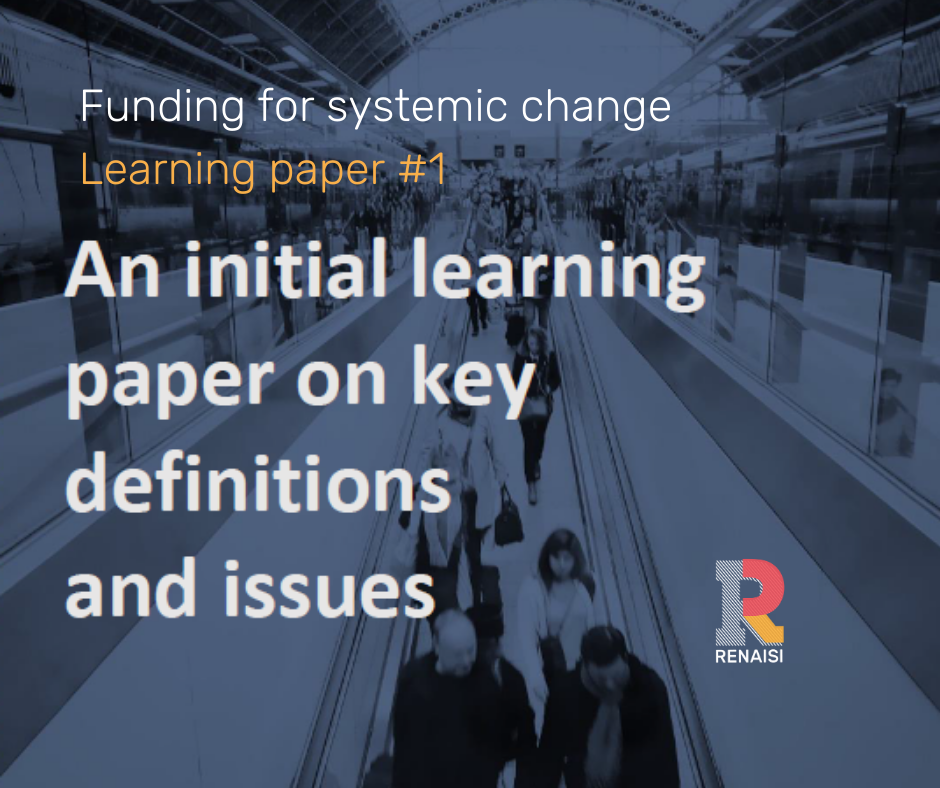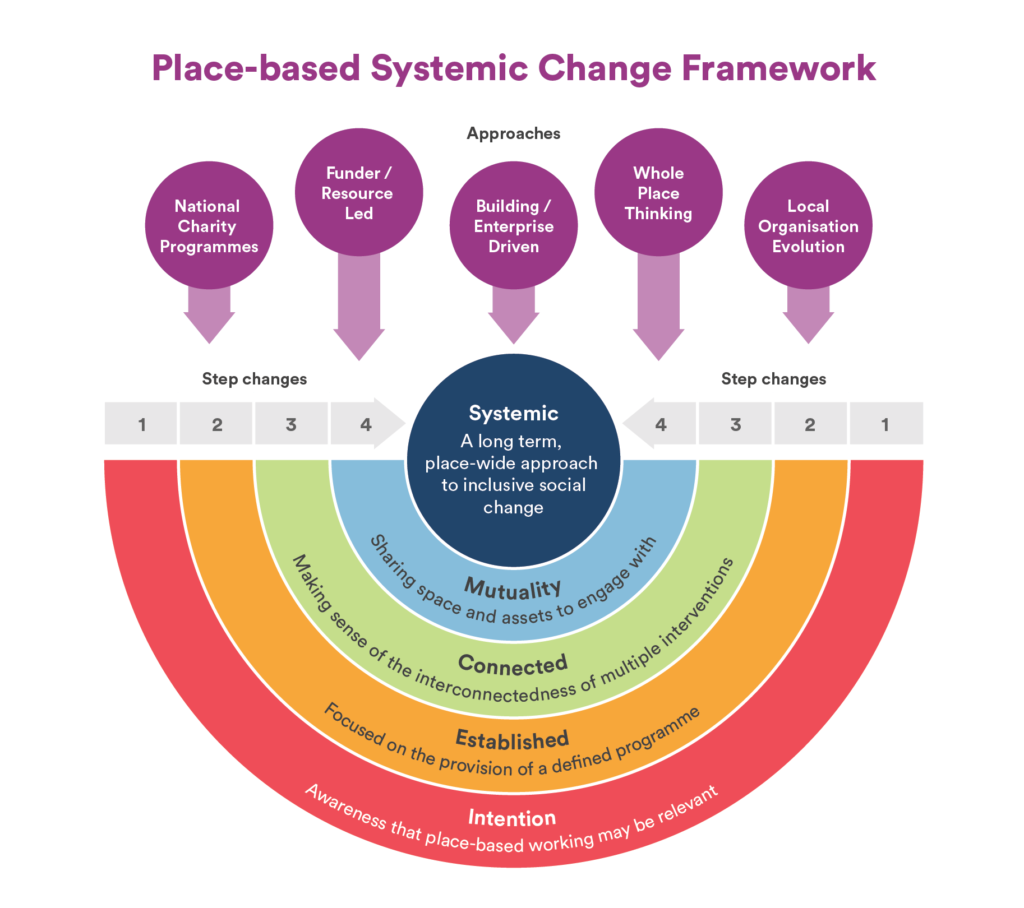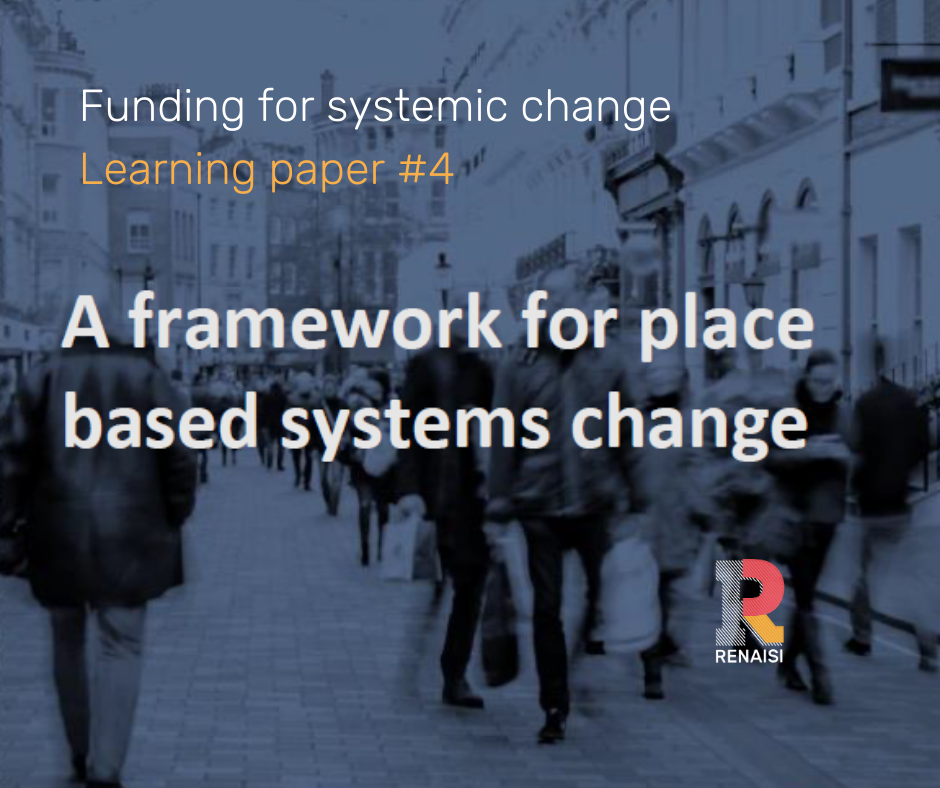
Paper 1
‘Place-based’ working is an increasingly popular approach to social change but it has defined most of Renaisi’s 22 years. We use it as a lens to view individual and societal issues, because
For all that, lots of funding, policy, research and current practice is still designed and structured to focus on issues (homelessness, offending, public health) or cohorts (unemployed people, refugees, young people). That creates a challenge for those of us who use place to understand and solve problems.
The project group, chaired by Save the Children UK and including charities, agencies and funders came together to think about how funding could help a movement towards place-based change.
The group started with a working definition:
“Place-based systemic change is an approach to social change, rather than an outcome of it, and is defined by focus, time horizon, approach, scale and intentionality.”

A second learning paper brings together the perspectives of more than 20 funders and identifies four big challenges to place-based systemic change:

The third learning paper is a selection of case studies from places and organisations that are learning to change systems, each of which came from a different approach and achieved differing levels of systemic change on their journey.

The group developed a framework for how to progress place-based systems change work. The core assumption of the framework is that there is more similarity across approaches to social change than the language that describes those approaches would suggest.

The framework has three key variables within it:
Approaches: the different types of ways into PBSC. It is possible to work in any of these ways towards PBSC, and there are likely others too.
Levels: the different levels of work that are typically moved through as the practice gets deeper. Some may move through them in different orders, repeat some, or bring in elements of later ones at earlier stages. In the main, however, there is a process of digging through to deeper levels and a consistent trajectory.
Step-changes: the big challenge for all approaches to PBSC is how to move to the next degree sustainably. Different approaches will touch on elements of the levels, but not sustainably. These step-changes, therefore, are often where the most external support, advice and resource is needed.

Learning paper 5 states that while there are examples of impact, this project showed that no organisation is currently working systemically because it requires all funders, commissioners and stakeholders in the place and the system to work together.
To do that we must continue to share and learn from others who are trying to work in this way. Interviewees have shown a desire to continue this work and we’ve been committed to advancing it for some time. Now we’re looking for other funders and delivery organisations who want to join us in sharing learning and practice on place-based systemic change.
Get in touch if you’d like to learn more or be involved in the next phase of this work.

Funding Place Based Systemic Change © 2020 by Renaisi Ltd is licensed under CC BY-ND 4.0